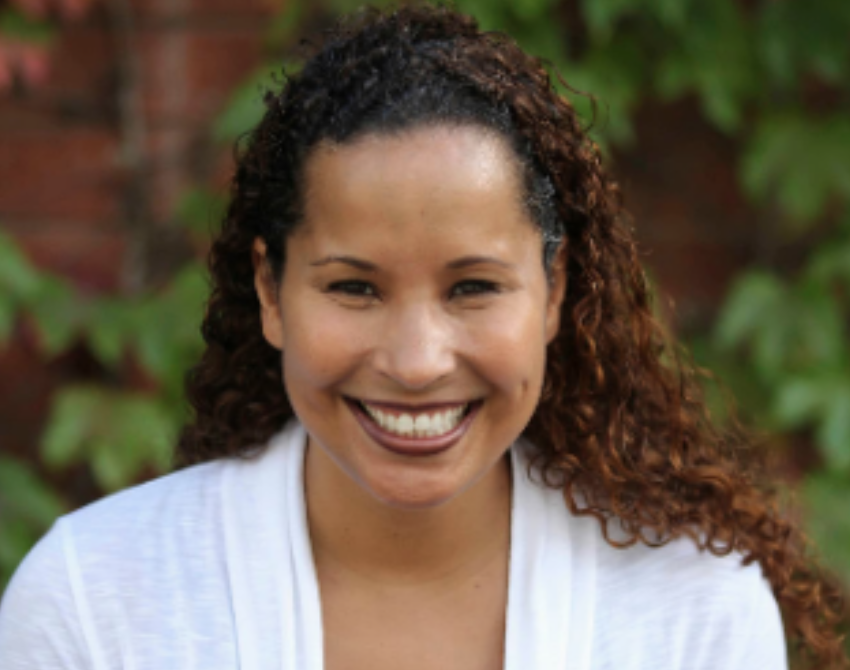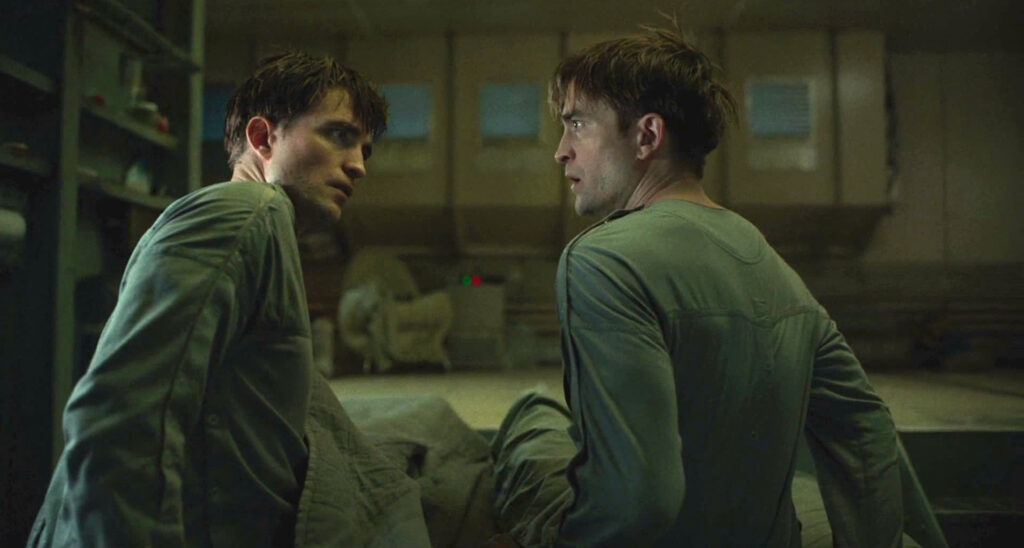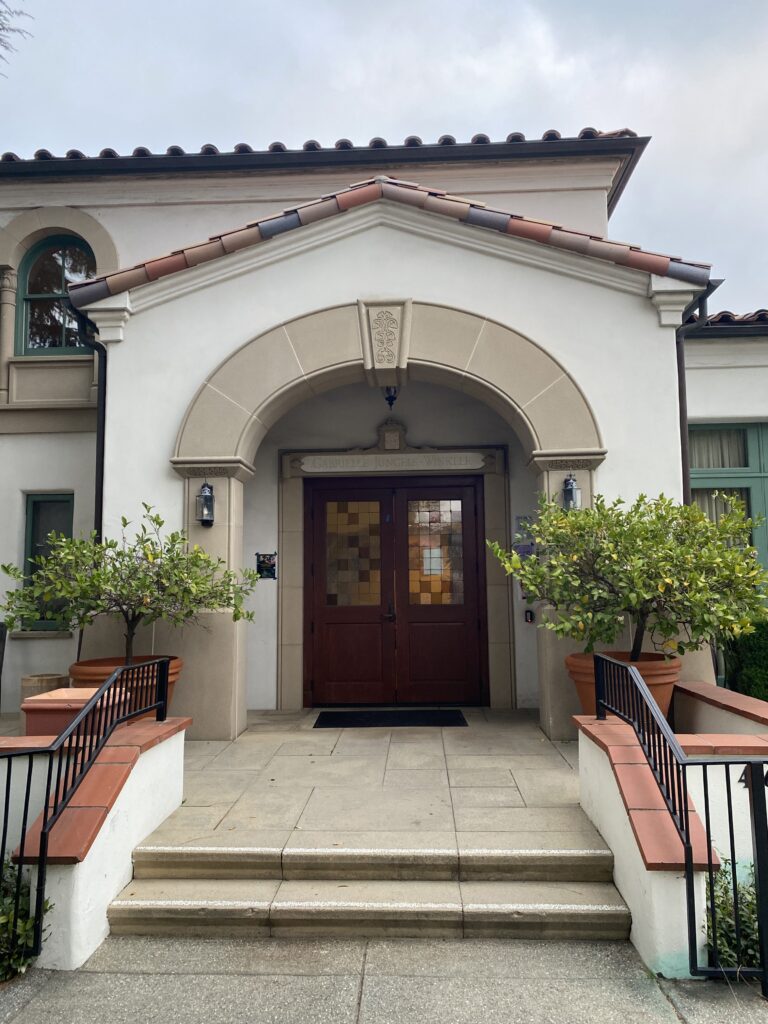By Madison Yardumian ’21
Copy Editor
Dr. Vanessa Tyson is an esteemed and invaluable member of the Scripps community–this is the sentiment echoed by students, faculty, Scripps Administration alike in the wake of her allegations against Lieutenant Governor of Virginia, Justin Fairfax.
Dr. Tyson’s allegations came in the form of a private Facebook post, which she made shareable upon request, and quickly circulated around the internet. This post was made in reaction to the possibility that Justin Fairfax would step in as governor if current governor Ralph Northam resigned in light of the recent discovery of photos from his medical school yearbook where Northam is posing in blackface. As of yet, neither politician has stepped down.
Virginia Republicans have begun to organize a public hearing where Dr. Tyson and Meredith Watson, another woman who has stepped forward with allegations against Fairfax, have been invited to testify. Both women have confirmed their willingness to testify, however Dr. Tyson is pushing for a bipartisan committee.
Fairfax believes the FBI should investigate, despite the non-federal nature of the accusations against him (should Dr. Tyson choose to press criminal charges against Fairfax, she would do so through the Suffolk County District Attorney’s office in Massachusetts).
On Feb. 6, five days after her initial Facebook post, Dr. Tyson and her legal team released a statement wherein she discussed her assault, which occurred at the Democratic National Convention in Boston July 2004. She depicts that she and Fairfax engaged in consensual kissing which quickly devolved into an assault when Fairfax physically forced her to perform oral sex.
In a statement to CBS News, Fairfax denied these allegations, asserting that their encounter was entirely consensual, and that some time afterward Dr. Tyson continued to talk to him, hoping to plan a trip to Columbia University (where Fairfax was in law school) so he could meet her mother.
In this, Fairfax not only denied Tyson’s claims, but with a quiet chuckle, attempted to debunk Dr. Tyson’s credibility. He tried to code her as desperate–as the kind of person who would never refuse his sexual advances, the kind of person who might take pleasure in ruining his political career. Fairfax also subtly worked the fact that he has a high-level degree from an Ivy League institution into his statement, perhaps hoping that his educational background would serve as evidence of his character, as evidence of the fact that he could never have committed an act of assault. This tactic was similarly used by Brett Kavanaugh when he faced allegations of sexual misconduct from Dr. Christine Blasey-Ford last September.
In his statement, Fairfax used Dr. Tyson’s own words against her, stating that their interaction was not only “a consensual encounter”, but that Dr. Tyson “admits” to this fact in her telling of the story because she acknowledged that their encounter began consensually. This statement blatantly conceals Dr. Tyson’s right to revoke consent at any point during a sexual encounter–especially as said encounter escalates. Fairfax also cited the fact that Dr. Tyson gave her story to the Washington Post when he initially ran for office, and they elected not to publish it. He claims that the Washington Post found “significant red flags and inconsistencies within [Dr. Tyson’s] allegations”, a claim the news source promptly refuted.
Dr. Tyson’s statement, which came out three days after Fairfax’s aforementioned conversation with the press, relays Dr. Tyson’s encounter with Fairfax extremely plainly, almost painfully so. The letter is both conscious and critical of not only Fairfax’s claims, but the hostility survivors are met with in our current political climate–particularly when they try to tell their stories. Dr. Tyson very explicitly states that she did not consent to anything beyond kissing, and states that she avoided Fairfax for the rest of the DNC and did not attempt to contact him again, as he claims she did. She rebuts his statement regarding the Washington Post article and denies any political motivation to her actions. Dr. Tyson also very powerfully admits to the “shame” she experienced after her assault: a shame which she, “like most survivors”, was forced to bury “as a necessary means” to seek success in her desired field.
Moreover, Dr. Tyson, putting herself on a level playing field with Fairfax, cites her education at the University of Chicago and her professorship at “a prestigious women’s college” to assert that she is just as accomplished as Fairfax, just as legitimate in the eyes of a society which conflates the pedigree of one’s degree with their worth. Dr. Tyson also anticipates and responds to the backlash inherent in telling her story–insisting that being “branded a liar” is “routinely the case when women come forward with allegations of sexual misconduct against prominent men.” In this, she reifies the courage it takes for survivors to publically share their stories in a world that is ready to attack them for doing so. She reminds us of all the reasons why survivors do not come forward, and allows us to marvel at her bravery for doing so regardless.
The Scripps community quickly made moves to confirm their support of Dr. Tyson, as did movements for women in politics. SAS released a statement of support and solidarity with Dr. Tyson, where 5C community members have been given a space to write their name and confirm their support for Dr. Tyson.
A similar type of letter was released by the Women’s Caucus for Political Science & #MeTooPoliSci. Women’s Caucus for Political Science is a nonprofit seeking to promote equal opportunities for women within the discipline of political science, which spearheaded the #MeTooPoliSci movement, giving female-identifying/women+ political scientists a space to discuss their experiences with sexual misconduct. These two platforms also organized a statement of support for graduate students and academics of any discipline to sign, which attests to the strength of her character, the importance of the advocacy she does in her personal life and in her work, and how difficult it is for women of color to tell their stories of assault while existing under a “status quo [which] favors power and privilege.” The letter also affirms that its signers, and hopefully, the discipline of political science more broadly, “hold our government responsible and accountable for the misdeeds of its elected representatives.” A GoFundMe has also popped up to fund Dr. Tyson’s legal fees, which has raised $30,000 thus far.
Additionally, the Scripps community also sought more personalized approaches to supporting Dr. Tyson. Several letter writing campaigns emerged, where volunteers offered to either write up letters students submitted electronically or deliver letters students had written themselves to Dr. Tyson. This gave students the space to personalize their support to Dr. Tyson, which a larger statement of solidarity simply cannot accomplish. One of these letter writing campaigns was organized by Lina Mihret ’18, a Scripps graduate, who did so to “communicate to Prof. Tyson that she has a community of people at Scripps that will support her.” She also hopes that her efforts will help set a precedent of support, that her work will show community members that if they are in need, this community will show up for them.
Mihret added that her efforts to stand with Dr. Tyson were made to address the fact that Scripps Administration would likely remain silent on the issue. “I knew that Scripps as an institution wouldn’t vocally support Prof. Tyson,” Mihret said. “So it would again be up to the community to organize support for one of our own.”
Mihret also asserted that Scripps has a responsibility to support its black students, staff and faculty, given its status as a predominantly white institution. Dr. Tyson is one of five black female professors at Scripps, and the institution’s failure to advocate on her behalf indicates the larger systemic issue: places like Scripps claim to support women of color by making abstract statements, but do not actively show up for women of color when the opportunity arises.
According to an article by The Student Life, Scripps Vice President for External Relations and Institutional Advancement Binti Harvey stated that “while we are unable to comment on the incident in question, which occurred prior to Professor Tyson’s employment at Scripps College, we support women sharing their stories of sexual assault as a powerful tool for healing and change.”
This statement seems to purposefully distance itself from Dr. Tyson’s assault by asserting that it occurred before she was hired (thus making a statement of support unnecessary?), and makes an abstract statement of support for survivors without doing much of anything to suggest this support is anything more than a political move necessitated by Scripps’ status as a historically all-women’s college. This statement is also unsurprisingly color-blind, failing to acknowledge the hurdles women of color especially face in reporting sexual assault, and also fails to address the particular scrutiny Dr. Tyson faces by making her assault public information, a scrutiny which Scripps had the opportunity to counter, and did not take.
Niyati Narang ’20 was unsatisfied with Scripps’ response, and organized a group of students to write a letter to President Tiedens asking Scripps Administration to stand by Dr. Tyson in the form of a public statement.
The letter asserted that “to not publicly and boldly speak out on behalf of Professor Tyson…reinforces those that attempt to silence her, and survivors at the national scale writ large” and “undermine[s] the founding principles that our community is built upon.”
Students were advised to send this email individually to flood President Tieden’s inbox with such demands. President Tiedens responded to each student individually. She insisted that the college was in contact with Dr. Tyson and her legal team and are doing all they can to avoid “unintentionally increas[ing] Professor Tyson’s emotional, professional, or legal burden.” According to President Tiedens, being in contact with Dr. Tyson’s legal team is “the best form of support the college can provide.”
Narang believes that this statement as “a cop-out” and distrusts the notion that “supporting Dr. Tyson behind closed doors was the only and best form of support the school could provide.” By remaining silent, Scripps has inadvertently communicated to its student body that the only way to support survivors is to state that you support survivors. Given the fact that Scripps students are the most likely among the 5Cs to experience sexual assault, and the least likely to perpetrate sexual assault, Scripps missed a powerful opportunity to stand by not only a member of its faculty but its students.
While the Scripps Administration has asserted its legal inability to outwardly stand with survivors and women of color, I am proud that the wider Scripps community has sought to rectify this and support Dr. Tyson. Narang describes how a Scripps professor delivered notes of support from students to Dr. Tyson, who was apparently “deeply touched, moved, and grateful for our support.”
Support matters. These seemingly small actions are ways of indicating that survivors and their experiences matter in a world which continually delegitimizes their perspective and denounces their right to be heard and believed.
“[Students] should continue to send their support to Professor Tyson in whatever way they can,” Narang said. By writing letters to Dr. Tyson, having conversations with Scripps administration, contacting our legislators and asking them to push for Fairfax’s resignation, and more, the Scripps community can continue to support one of our own.
Graphic by Emilie Hu ’21, Design Editor





